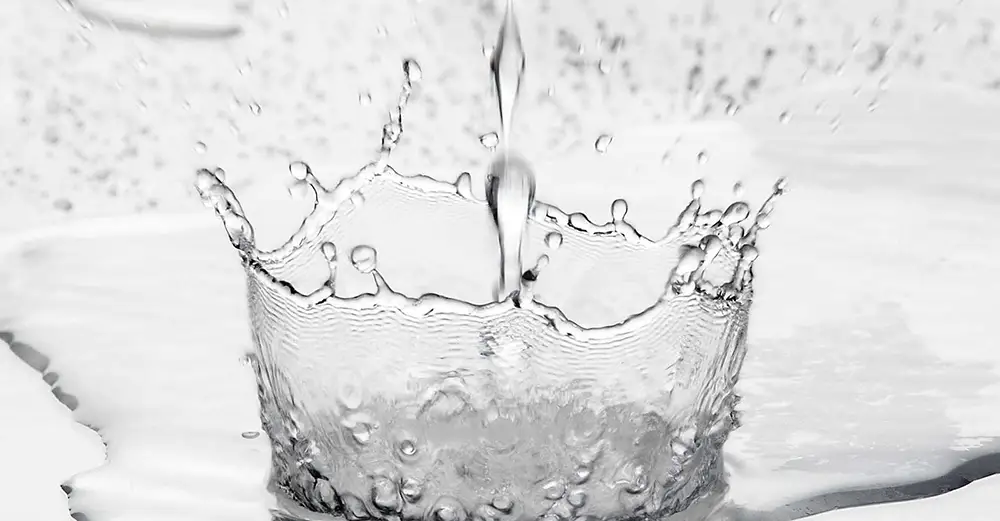Brewing beer is no longer the patent of large breweries. Craft brewers and home brewing enthusiasts in every town can also brew beer. Now, beer lovers can enjoy different styles of beer and even try their ideas about beer.
Beer has four simple ingredients: hops, malt, yeast, and water. Each of these affects the flavor of the beer. Among them, some people think that water is just water and will not affect the flavor of the beer. But in fact, this is not the case. The content of water in beer accounts for 90-95%, which is also great for the flavor of the beer. The quality of brewing water will affect the enzyme activity in the mash, the solubility of minerals, the taste, and the quality of the beer. The quality of the water will also affect the condition of the brewing equipment. In the past, different regions of water produced different styles of craft beer.

Type of water
Tap water
Many people are drinking tap water, which is the easiest source of water to get when brewing. It should be no problem to use tap water for brewing. But, it may contain a lot of chemicals. If your tap water contains a lot of chlorine, then I do not recommend that you use it for brewing. Because the disinfectant will affect your brewing process, and then have an impact on the quality of beer. If there is other filtered water or spring water, I would not recommend you to use tap water.
Distilled water
It is not recommended to use distilled water when brewing. Distilled water is boiled and then condensed back to the liquid form of water, which will filter out some minerals that are beneficial to brewing. If you are brewing whole grains, please do not use distilled water, you can choose to use filtered water.
RO water or reverse osmosis water
The reverse osmosis device will only destroy the solids and sediments in the water through the filter and semi-permeable membrane. It is highly recommended to use RO water when brewing because it is directly connected. RO water can keep the minerals needed during brewing, so RO water is very useful.
Filtered water
This is any water that runs through a single filter, such as a Brita or PUR filter system, which you connect to a synchronized tap. These will be very suitable for brewing because they can filter your tap water and you don’t have to go out and buy spring water. When you start brewing, you need to use the Brita filter in advance to filter enough water before you start brewing.
Well water
As a rule of thumb, you can use well water for brewing, especially if the drinking water in your hose is supplied like this. I still think the best brewing water is RO water or filtered water. But if you choose well water, you first need to ensure that it is safe to drink.
Rainwater
Although using rainwater for brewing is very environmentally friendly, it is not the best water for your beer. Rainwater may contain certain chemicals, which will absorb pollutants in the air. So, I do not recommend using rainwater.
Summarize the most suitable water for brewing. We recommend the use of filtered water and RO water. Of course, you can also use tap water and distilled water.
Which substances in the water affect the flavor of beer?
Many chemical reactions are involved in brewing beer. It’s not just about whether you should use hard or soft water. This is about explaining the chemical composition of your brewing water and how they affect the substances your brew.
Calcium: One of the main minerals that affect water hardness. Calcium can lower the PH value of wort during the saccharification process. It can also promote the clarity and stability of the final beer. Generally speaking, a content range of 50 mg/L to 150 mg/L is preferable.
Magnesium: Another major mineral that affects water hardness. It does not affect pH like calcium. Both calcium and magnesium are important yeast nutrients. 10 to 30mg/L of magnesium is needed to help the yeast during brewing, but too much may cause bitterness.
Carbonate and bicarbonate (CO3 and HCO3): affect the alkalinity of the brewing water and the acidity of the mash. When the content is too low, the mash will be too sour, and when the content is too high, the efficiency of the mash will below. The carbonate content required depends on the type of beer being brewed. According to beersmith.com, the content of light beer should be 25 to 50 mg/L, and the content of dark malt with higher acidity should be 100 to 300 mg/L.
Sodium: When there is a small amount of sodium, it has little effect on beer flavor. It also helps maintain the health of the body and the taste of beer. But, too much sodium can produce a metallic taste in beer. This is why demineralized water should not be used to brew beer. The sodium content is acceptable in the range of 10-70mg/L.
Chloride: Like sodium, it affects the taste and complexity of the beer. It can make the beer taste fuller or sweeter. But, chlorine is not a chemical substance used in brewing water. Chlorine is often used to treat urban water or disinfect brewing equipment. Also, chlorine can negatively affect the flavor of the finished beer.
Sulfate: It helps to exude the taste of hops, and it can also lower the pH of the water. It has the opposite effect of chloride.
To learn more about the water content in your area, please contact your local water authority to request a water quality report. He should provide you with the total hardness and total alkalinity of the public water supply in your area.
Accurately calculate the PH of the water
Brewers need to know what kind of water they are dealing with. But for most people, precise calculations are more important than general principles. The purity of the water is the most important, and the brewing water should not contain contaminants. In contrast, the mineral content of the water is a secondary issue because it can be adjusted.
A smart brewer can calculate how much grain is needed to offset the pH based on the color that the beer needs. They can then determine what adjustments need to be made.
When brewing dark beers (such as Munich Dunkel, Porter, and Stout) they work well with hard alkaline water. This is because colored malt is more acidic and offsets the higher alkalinity, thereby reducing the pH to the desired range.
Conversely, light malt may not add enough acid to reach the desired pH. So, brewers may need to add lactic acid, use acid in the mashing process, use acidified malt, or add gypsum or other salts to it.
For bitter beer styles like IPA, mash with a higher pH is not ideal. Because alkalinity can amplify the bitterness of hops and become irritating or astringent. You can get softer water in many ways, such as diluting hard water by adding distilled water.
So, use hard water or soft water to start brewing, which is better? It depends on the style of beer you brew. The less you need to adjust, the better.
When you deal with water problems, almost any action plan will cause a chain reaction. For example, when alkaline substances are removed from hard water, they will take away too much calcium. But all beers need a certain amount of calcium for the mash to play a good role. So, it may be necessary to re-add a certain amount of calcium. In the case of soft water, it may be necessary to add trace minerals, such as zinc and copper, so that the yeast can chew. But excessive minerals may also oxidize beer or produce an unpleasant taste.
If you plan to start brewing your beer but have not purchased brewery equipment, you can contact us. Micet Group will provide you with customized design and manufacturing of brewery equipment. Of course, we will also consider your local water situation and provide you with customized turnkey solutions. Micet Group looks forward to cooperating with you very much.




